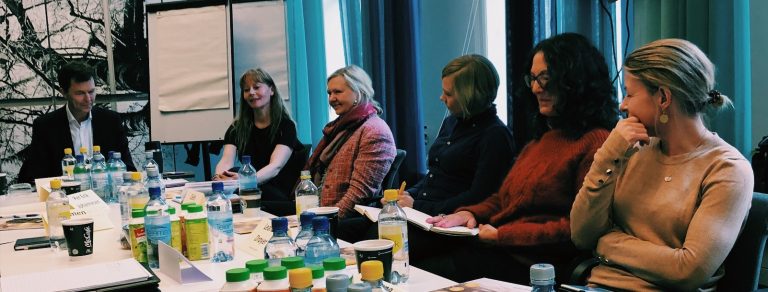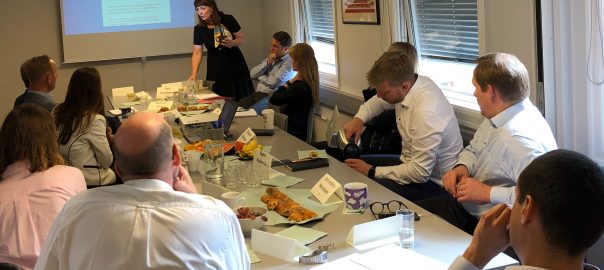The Journey to a Sustainable Future
Participants gathered at AmCham’s offices for the Q2 edition of our Sustainability Forum. Featuring presentations from Philip Morris Norway’s Pia Prestmo and RCL Cruises’ Geir Kronbæck, the forum addressed the processes behind implementing sustainable business practices, highlighting the fact that sustainability is not a fixed goal, but rather a journey of continuous improvement, innovation, and strategic evolution.
Sustainability at PMI
Philip Morris Norway’s Manager of External Affairs Pia Prestmo kicked off the event with an engaging presentation covering PMI’s global sustainability transformation. Prestmo began by highlighting the cross-industry diversity in the room, noting how different industries have the ability to contribute to a diverse range of sustainability goals, noting specifically the UN’s 2017 Sustainability Development Goals (SDGs), a primary focus throughout PMI’s sustainability strategy.
For PMI, SDG #3, good health and well-being, and SDG #8, decent work and economic growth, were identified as core areas for PMI’s sustainability efforts.
Regarding SDG #8, Prestmo noted the efforts PMI has made in working to secure safe working conditions and equal pay for farmers and suppliers across the world through implementation of its Agricultural Labor Practices (ALP) program in 2011.
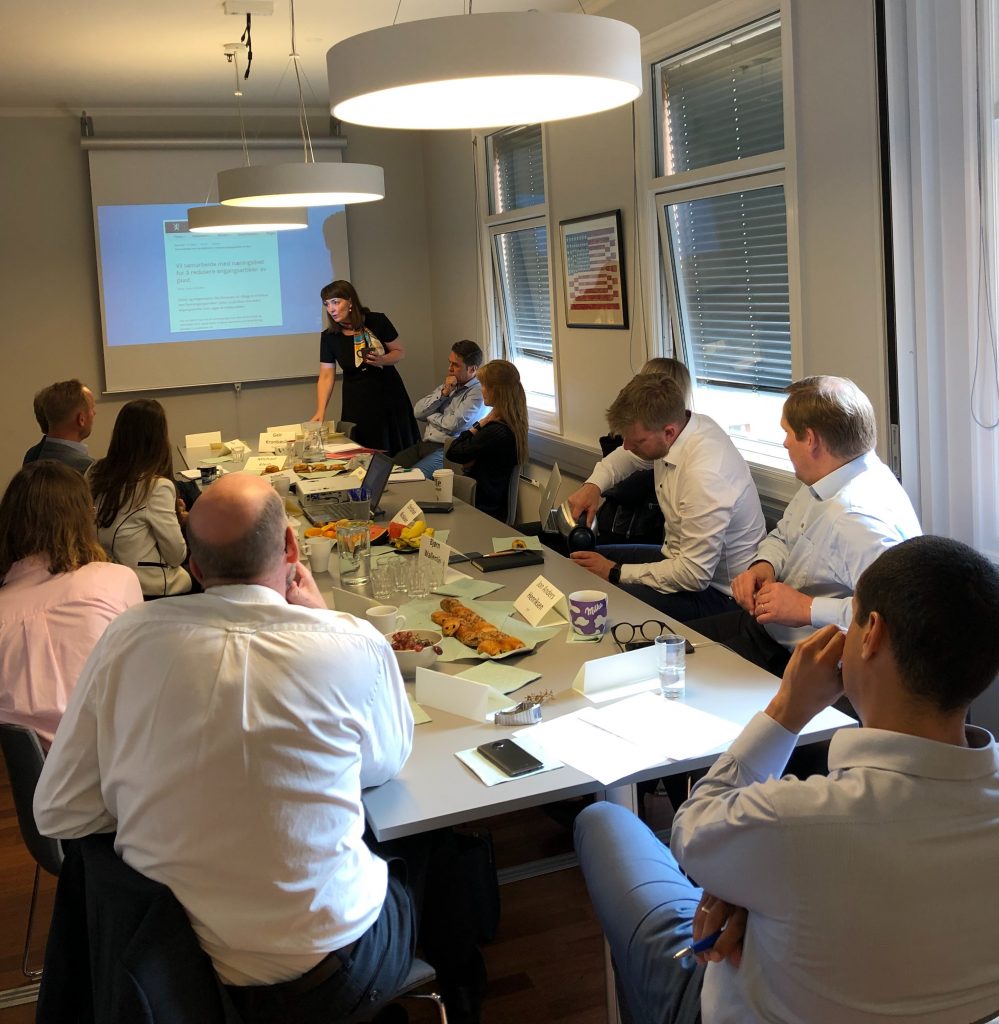
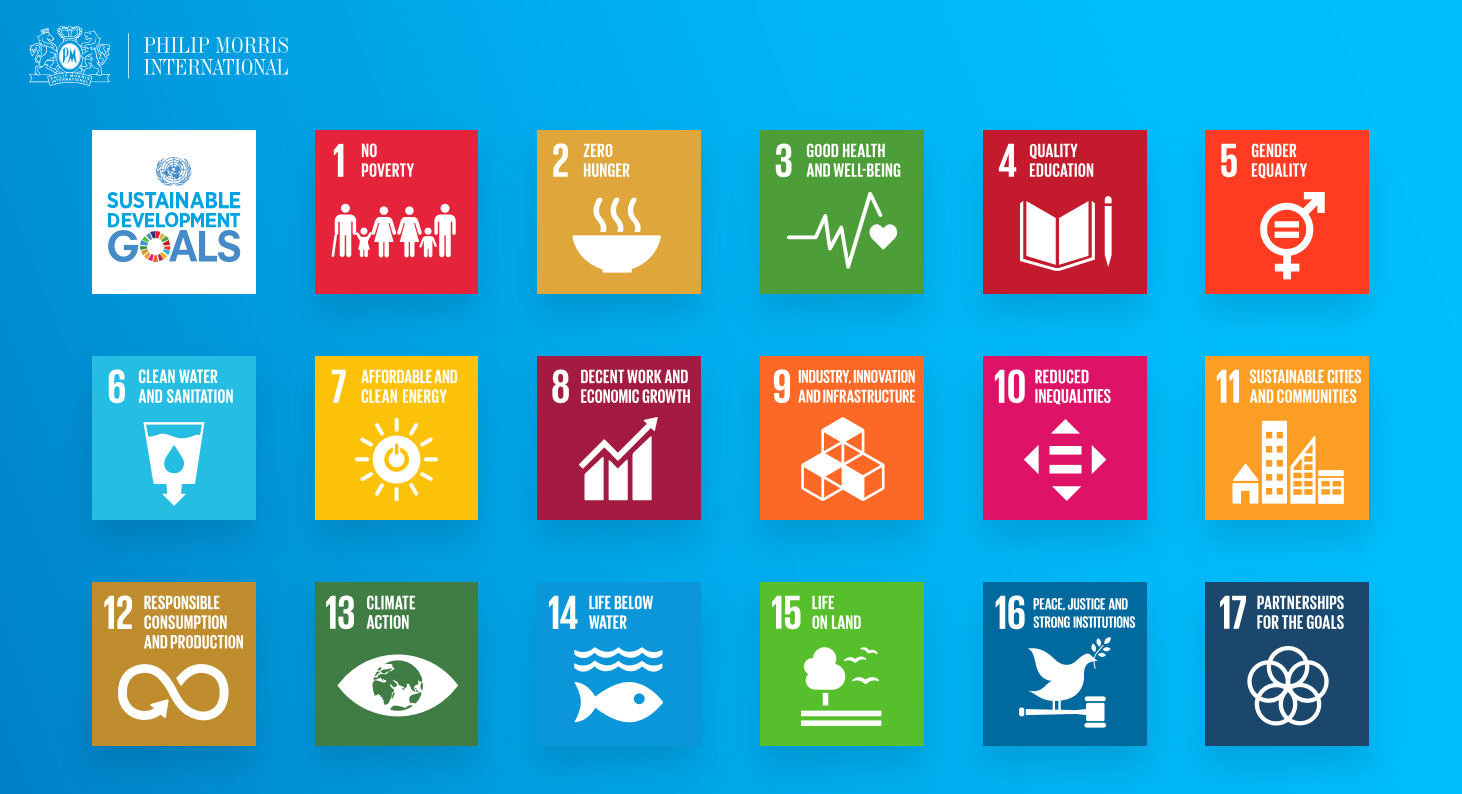
Prestmo noted SDG #3 as a critical area of focus for PMI, commenting on the significant role that PMI can play in moving nicotine users along the risk continuum from combustible tobacco products to less harmful, smoke-free products.
She then turned to public-private cooperation, highlighting how important it is for government officials, politicians, and regulatory bodies to include the business community in crafting solutions and drafting policy. “More often than not, the solutions for a wide range of sustainability issues lie with the business community, and it is important that public officials understand the innovation power our companies possess.”
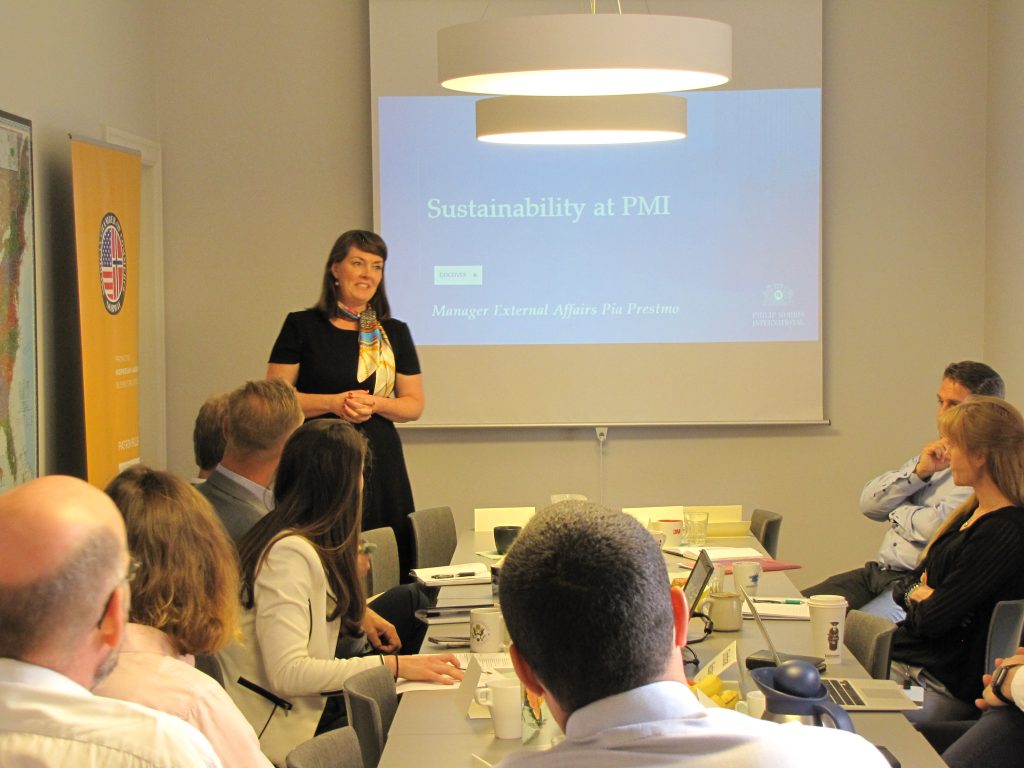

“More often than not, the solutions for a wide range of sustainability issues lie with the business community, and it is important that public officials understand the innovation power our companies possess.”
Pia Prestmo
Philip Morris Norway
"Seastainability": RCL’s Corporate Sustainability Journey Since 1992
RCL Cruises’ General Manager for the Nordics Geir Kronbæck followed Prestmo, leading participants through the company’s sustainability efforts, the bottom-line boosting effects of sustainable business practices, and RCL’s experience working with public officials and local communities on sustainability issues, noting the importance of a long-term approach to sustainability.
“As Norwegians, we often like to highlight the things which we do best – take cross-country skiing, for example. Sustainability isn’t like that, though. Even though people, cities, and countries are ‘competing’ to be the best or most sustainable, sustainability is about continuing to improve – there is no finish line,” he noted.
After taking member company participants through RCL’s approach to sustainability – one extending from ship design to HR strategy – Kronbæck, like Prestmo before him, emphasized the importance of public officials working in concert with businesses on sustainability issues.
Such dialogues, he noted, would help the government in creating regulatory platforms in line with available technology and adhering to feasible timeframes. He concluded by emphasizing the importance of predictable sustainability frameworks for the cruise industry, “Building a cruise ship is a considerable undertaking, and we cannot build them as fast as some politicians would like to change regulations.”
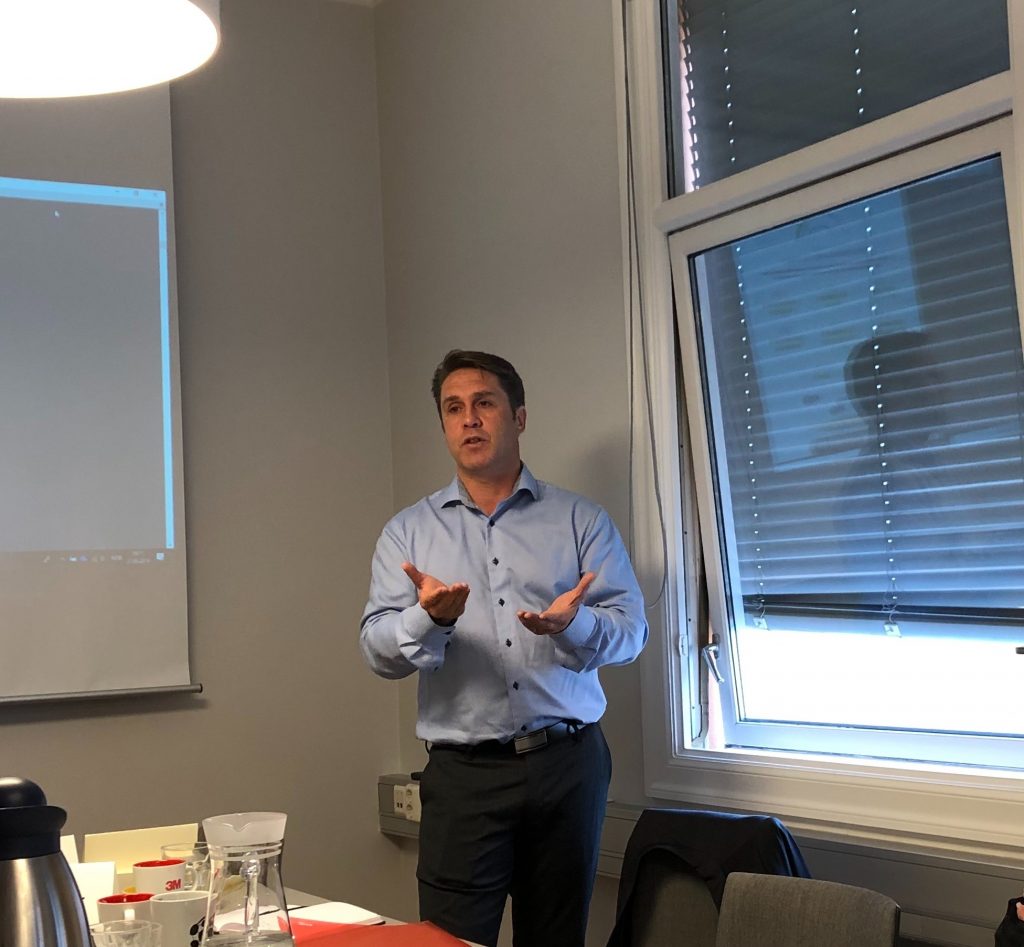
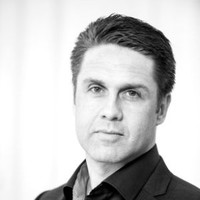
“As Norwegians, we often like to highlight the things which we do best – take cross-country skiing, for example. Sustainability isn’t like that, though. Even though people, cities, and countries are ‘competing’ to be the best or most sustainable, sustainability is about continuing to improve – there is no finish line.”
Geir Kronbæck
RCL Cruises
The Path Forward
After the conclusion of Kronbæck’s presentation, participants engaged in a roundtable discussion that complemented the themes brought up in both presentations. One participant highlighted the importance of understanding the connection between different types of emissions and understanding the linkages between them. Another noted the importance of increasing industry understanding amongst the public and making sure the business community works together to create sustainable frameworks that foster growth instead of hindering it.
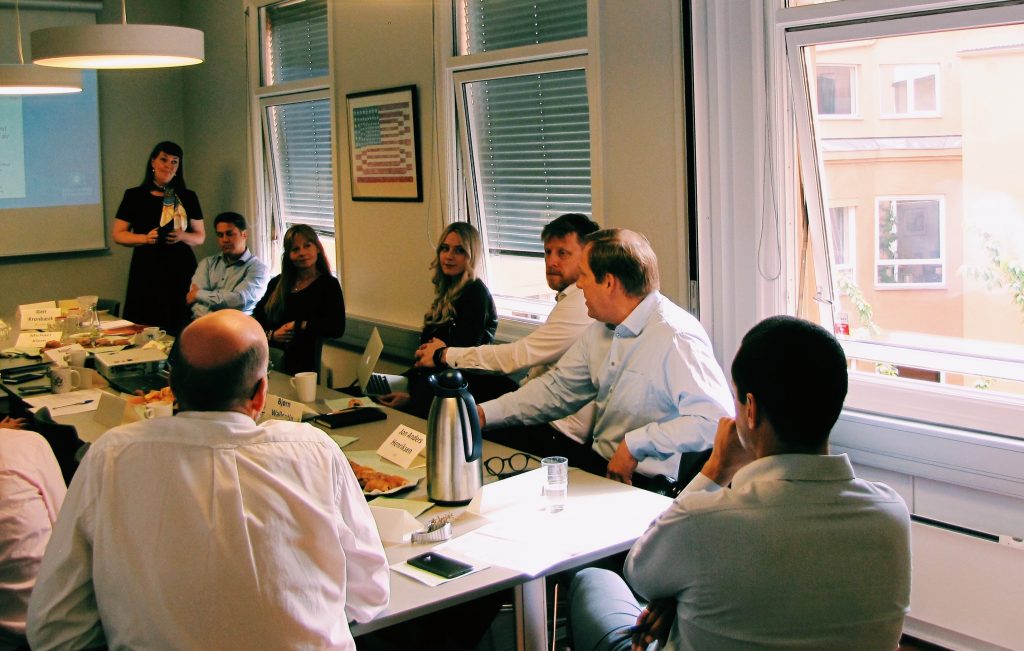
About the AmCham Sustainability Forum
Many AmCham companies have been on the sustainability journey for some time, while others are trying to find their way to a sustainable future. Though our members are represented through the full spectrum, we know that several are at the forefront within their respective industries.
Hence, AmCham brings select, cross-industry member company representatives together on a quarterly basis to discuss opportunities, share best practices and find out how AmCham members can play a role in the Norwegian sustainability agenda going forward. Read more about our Sustainability forum here, and please contact us for interest in future forums.
